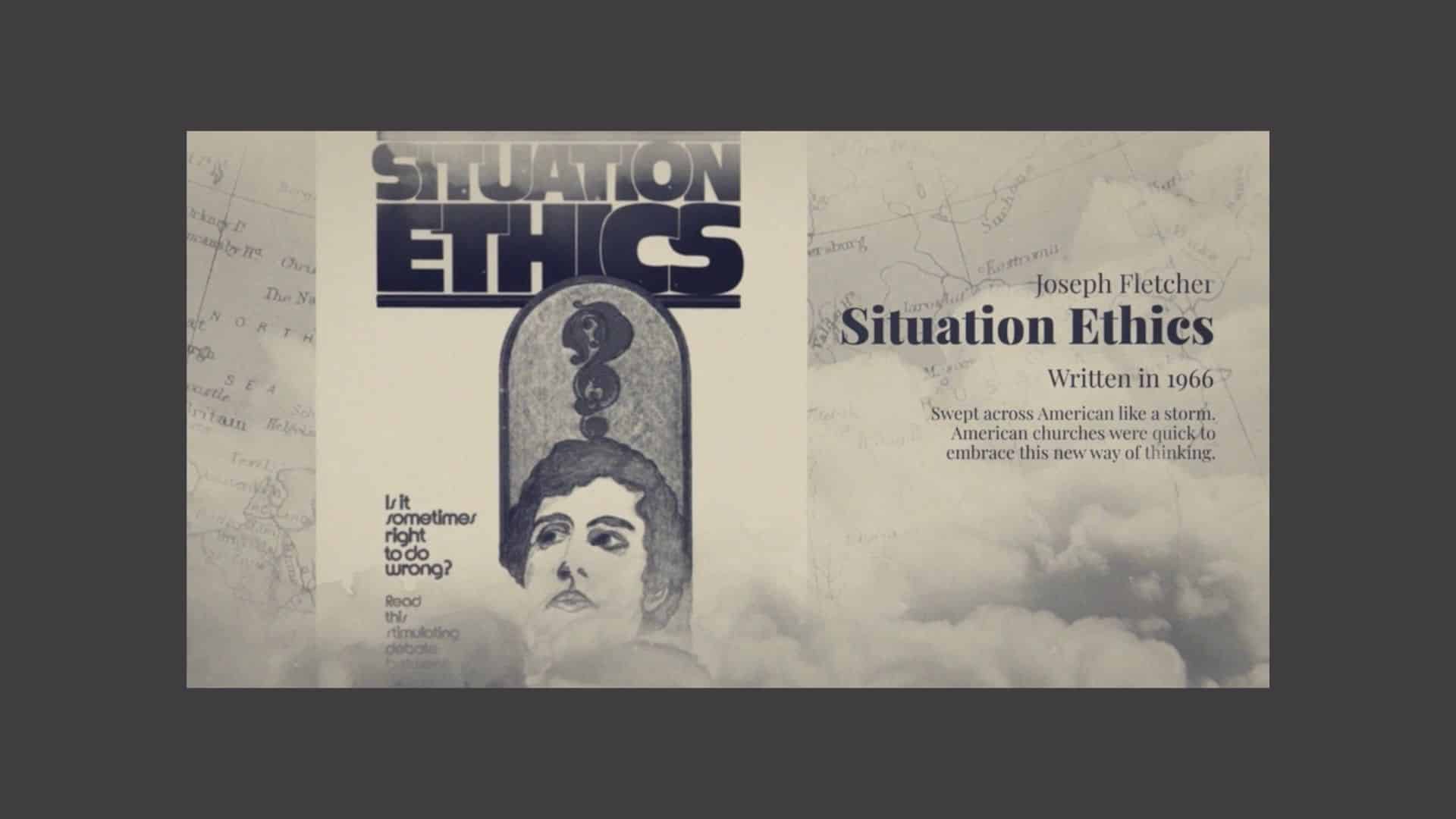Cary Gordon summarizes situation ethics this way:
A person temporarily turns his or her back on God’s law during a particular situation where he or she assumes that obeying it will not produce the desired outcome. The subjective act of situationism is nearly always dishonestly described as “choosing the most loving thing to do” after a flawed and sinful person presumes to pass judgment against God’s perfect law, declaring it “too harsh” for application in a particular situation.1
Pastor Sam Jones writes,
When you consider making a moral decision, what question do you ask yourself? Do you ask, “What will happen?” or “What is right?” The situation ethicist asks, “What will happen?” He or she can guess or suppose, but the person cannot know! Omniscience is not a human quality. Despite this, in our culture, we have been so conditioned by situation ethics that we can hardly even recognize our own pragmatism [our assumption that the ends justify the means]. From politics to the playground and from our workplaces to the pulpit we have person after person asking themselves the wrong question as they make moral decisions.2
1Cary Gordon, cited in 5 Steps to Kill a Nation and How to Stop the Bleeding by Pastor Sam Jones, (Newport Beach, CA: The GK Publishing Company), 98.
2Jones, 98-99.
